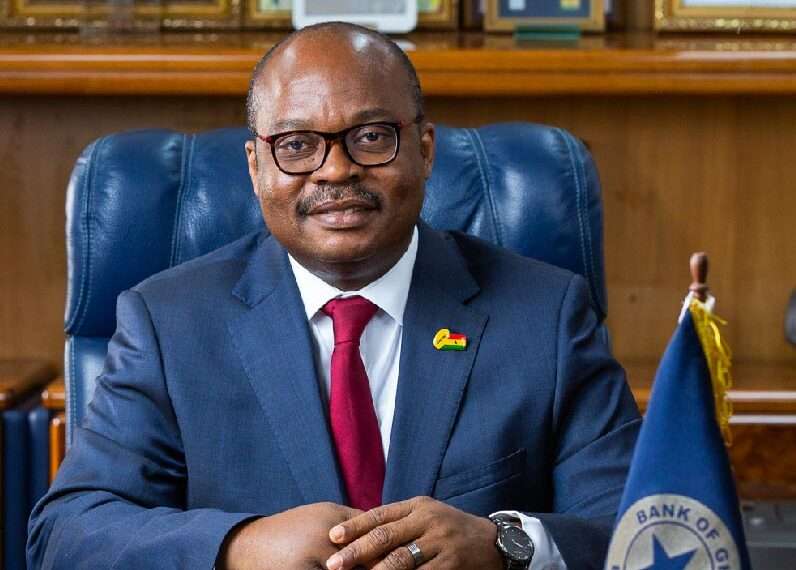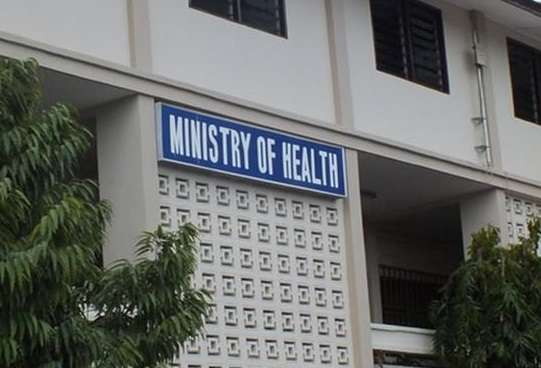The Governor of the Bank of Ghana, Dr. Ernest Addison, has shed light on the rationale behind the bank’s engagement in monetary financing during the COVID-19 pandemic, a period when many central banks globally were adopting accommodative policies.
Speaking during an interview on the sidelines of the ECCB 40th-anniversary and Central Banking Autumn meetings in Saint Kitts and Nevis, Dr Addison explained that the completion of the financial sector clean-up by the end of 2019 had strengthened major banks, while weaker ones were eliminated from the system.
With the banking sector poised to support financial intermediation due to additional capital from the recapitalisation process, the unforeseen COVID-19 pandemic disrupted these plans, he stated.
Dr Addison recounted the government’s response to the crisis, emphasising the need for increased spending to implement intervention schemes aimed at mitigating the pandemic’s impact. However, revenue shortfalls posed a challenge for financing these extensive expenditures.
Before the pandemic, Dr Addison highlighted that the Bank of Ghana (BoG) had not engaged in any monetary financing, making the transition to providing financial support to the government a significant shift.
To address the financing challenges, the Finance Minister sought a suspension of the Fiscal Responsibility Act in Parliament due to the pandemic. This move enabled the activation of emergency provisions in the Bank of Ghana Act, allowing for exceptional financing for the government budget.
Governor Addison acknowledged the unexpected nature of the central bank’s involvement in budget financing, especially considering the global trend of central banks in advanced economies accommodating fiscal policies to address COVID-related expenses.
Allocating Additional Special Drawing Rights
The International Monetary Fund (IMF) also played a role by allocating additional Special Drawing Rights (SDRs) to central banks. These SDRs were designated to help governments meet their COVID-related expenditures, providing the central bank with additional resources for budgetary support.
Despite facing challenges, including a large fiscal deficit and a surge in debt to 80% of GDP by the end of 2020, Dr Addison emphasised that the central bank returned to zero financing in 2021.
This decision was made despite emerging red flags, as the central bank aimed to ensure minimal instances of financing from 2017 to 2021.
Prior to that, Dr Addison noted that he had not done any monetary financing, that is financing of the budget had been zero. “Therefore, providing financing support to the government was not an easy transition for us to make. We had some good discussions going into it”.
“The finance minister went to Parliament and requested for a suspension of the Fiscal Responsibility Act due to the pandemic. This enabled us to trigger emergency provisions in the Bank of Ghana Act to provide exceptional financing for the government budget. And that’s what we did.”
Dr. Ernest Addison
The BoG Governor indicated that by the second quarter after all those expenditures, things began to change. The currency took a severe hit because of significant portfolio outflows and heightened speculation about an IMF programme.
“Because of the strong stance of not going to the IMF, we began to lose reserves and government spending was far in excess of its revenues, including debt-service payments – we had to continue to service debt even though we had lost access to the market. This is why the central bank lost close to $3 billion reserves in 2022.”
Dr. Ernest Addison
Dr Addison highlighted that Ghana weathered the Covid-19 experience comparatively well, with low mortality rates and a positive growth rate, attributing this success to the fiscal impulse that stabilised the economy and saved lives.
READ ALSO: Oil Prices Decline Amid Saudi Arabia’s Price Cuts and OPEC Output Increase




















